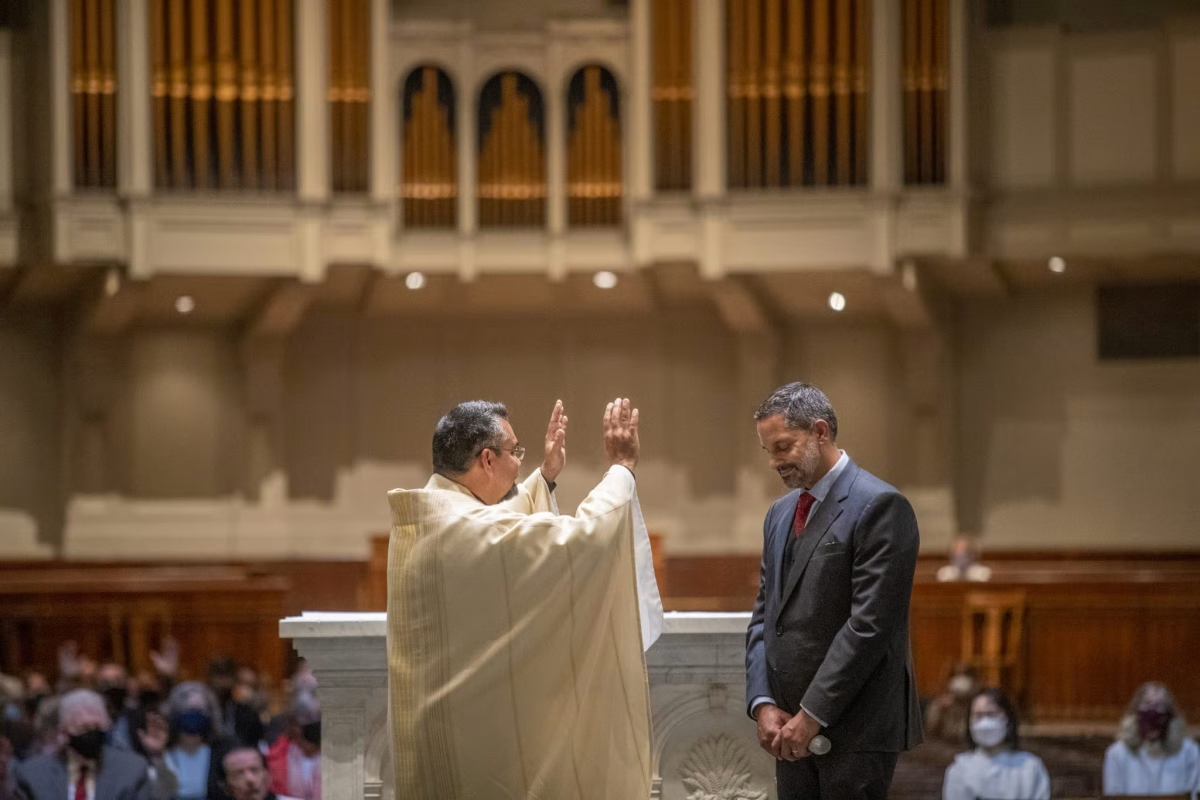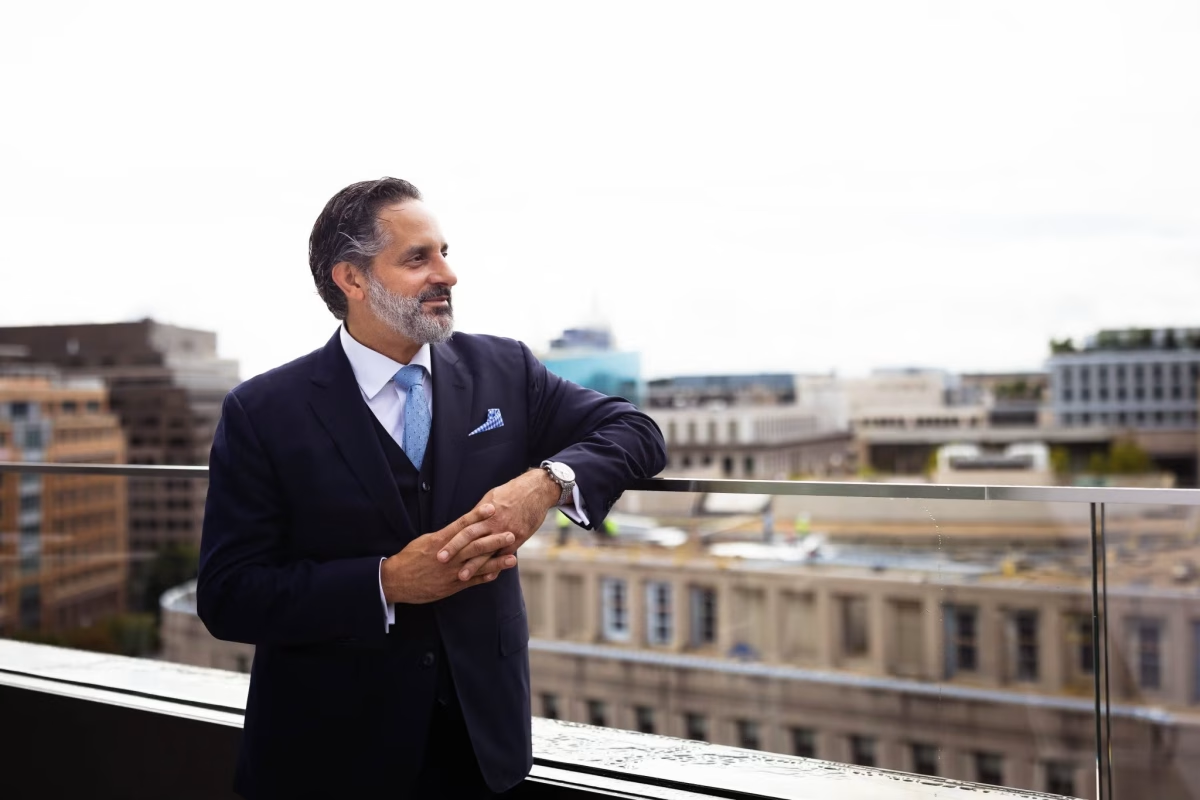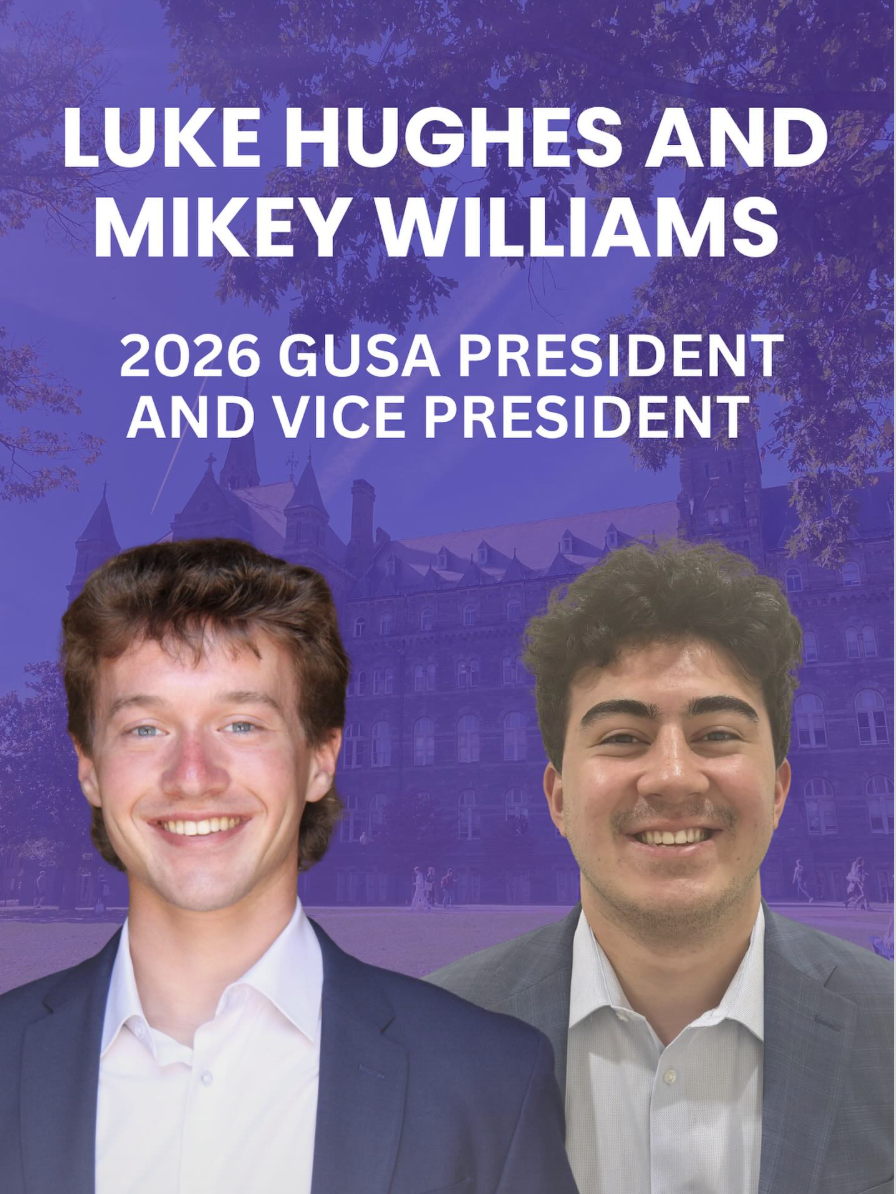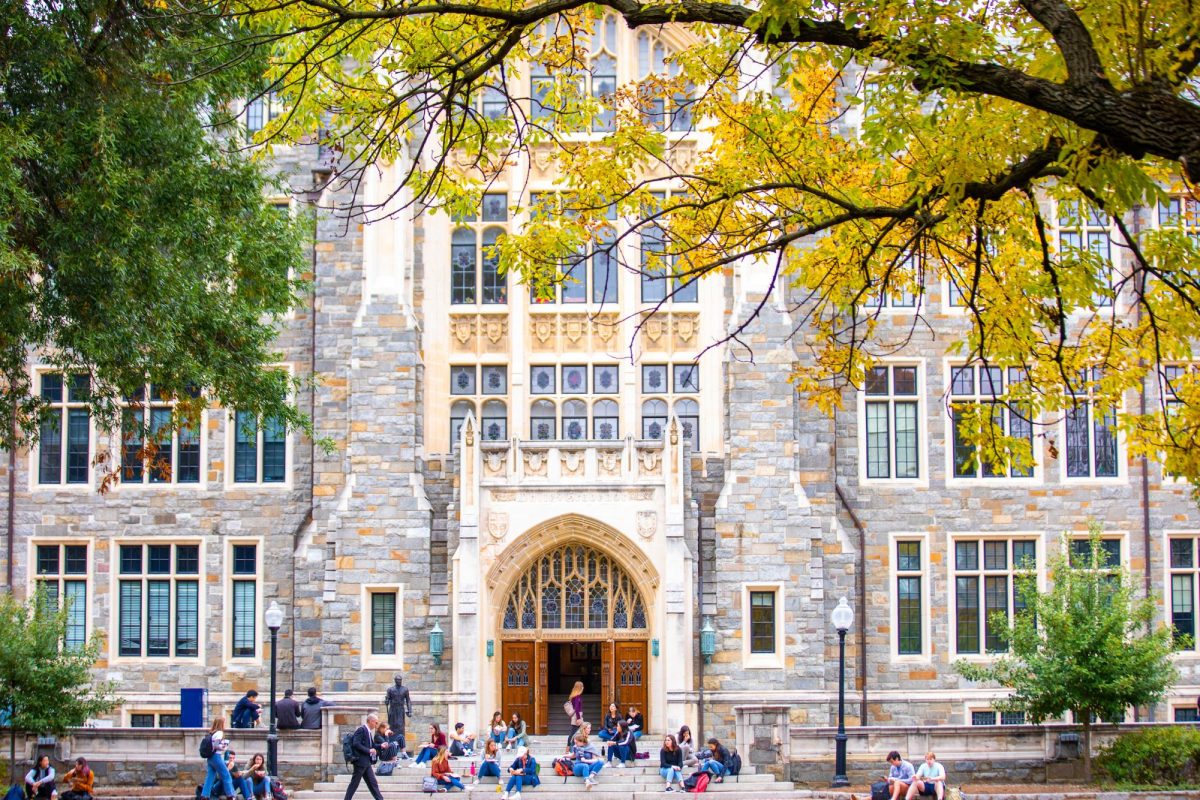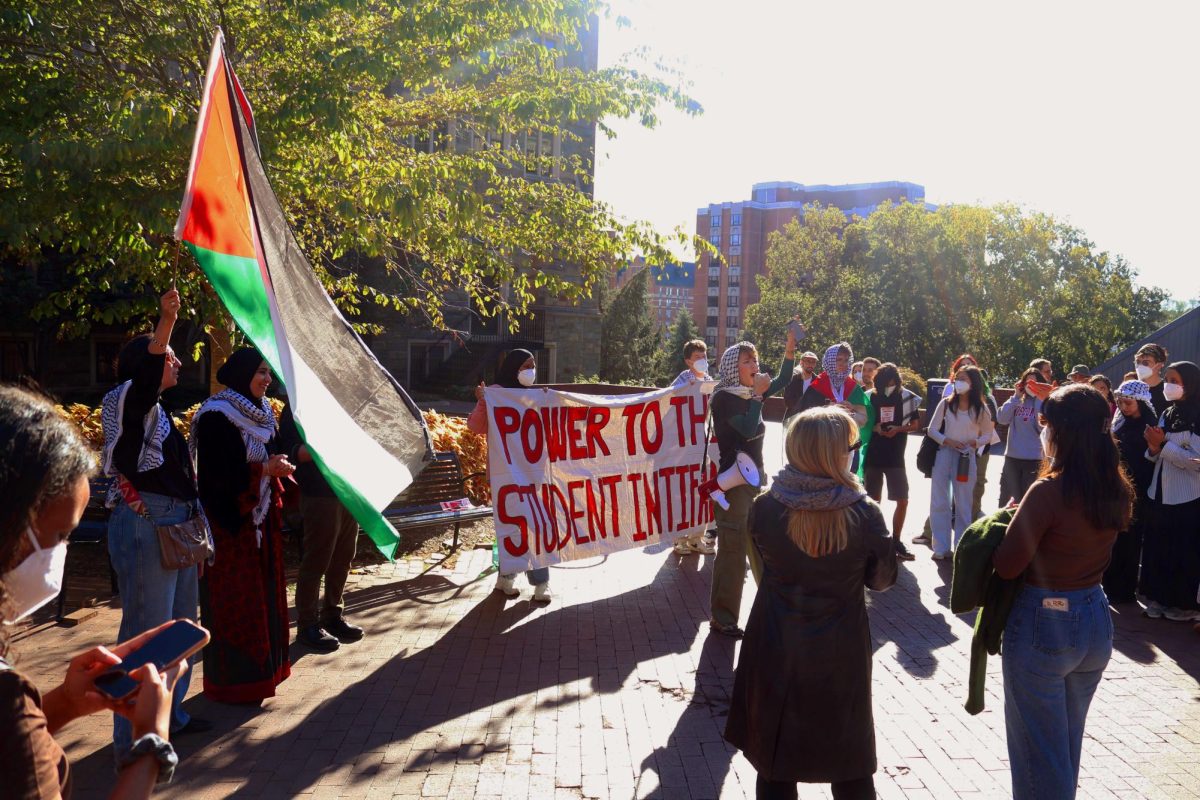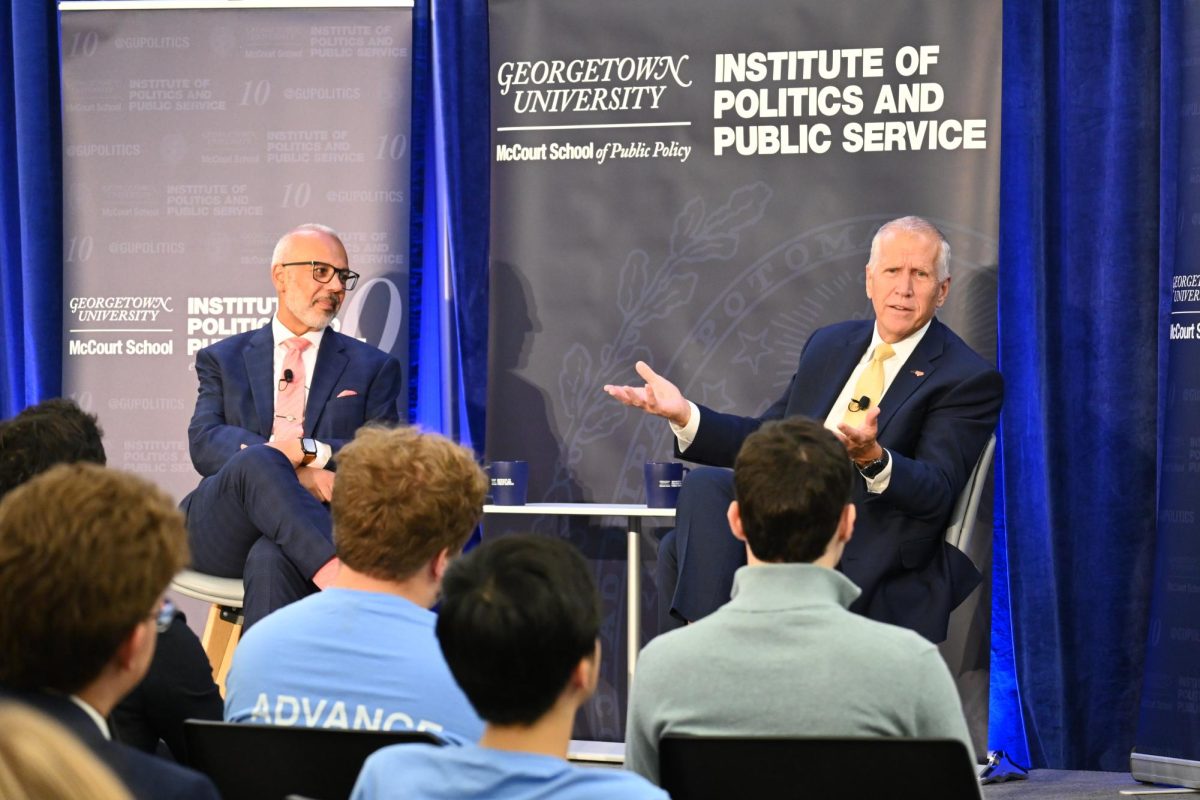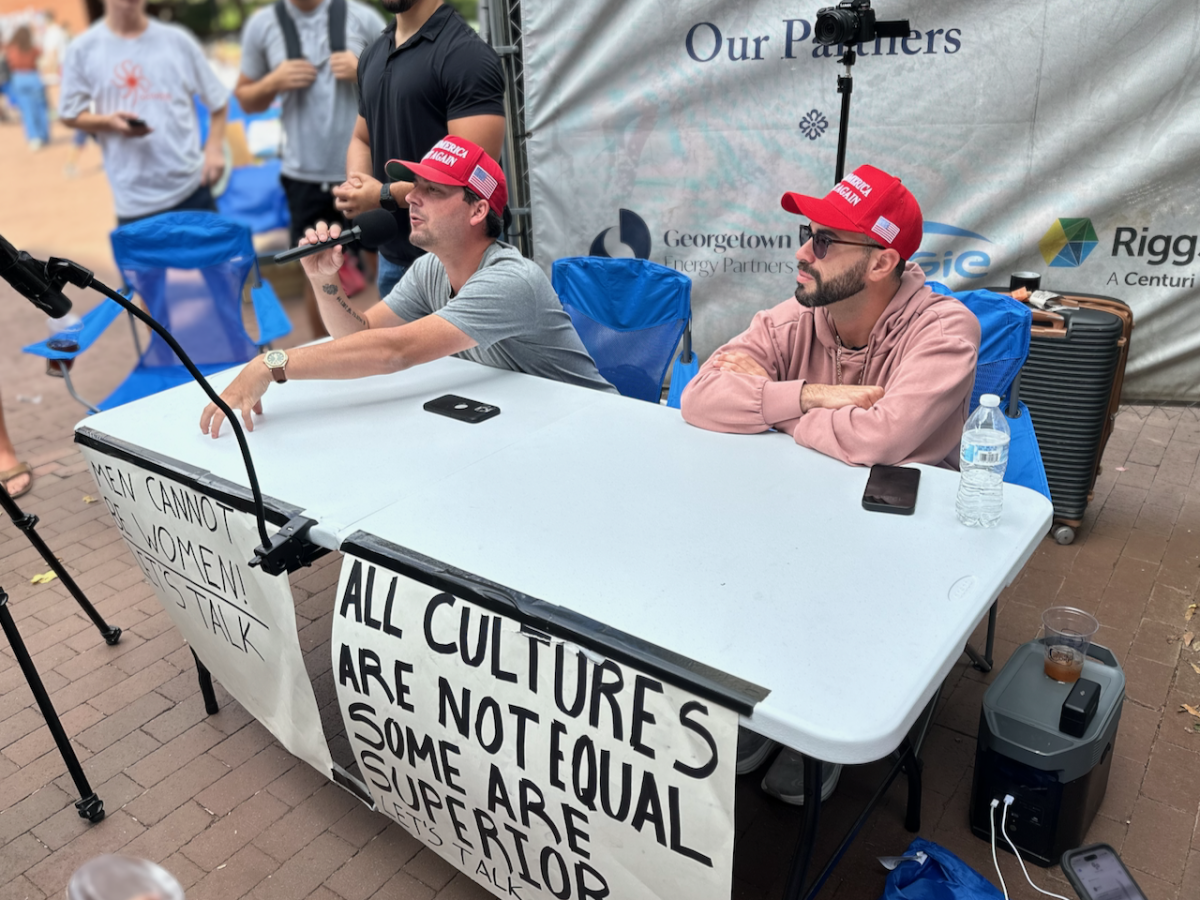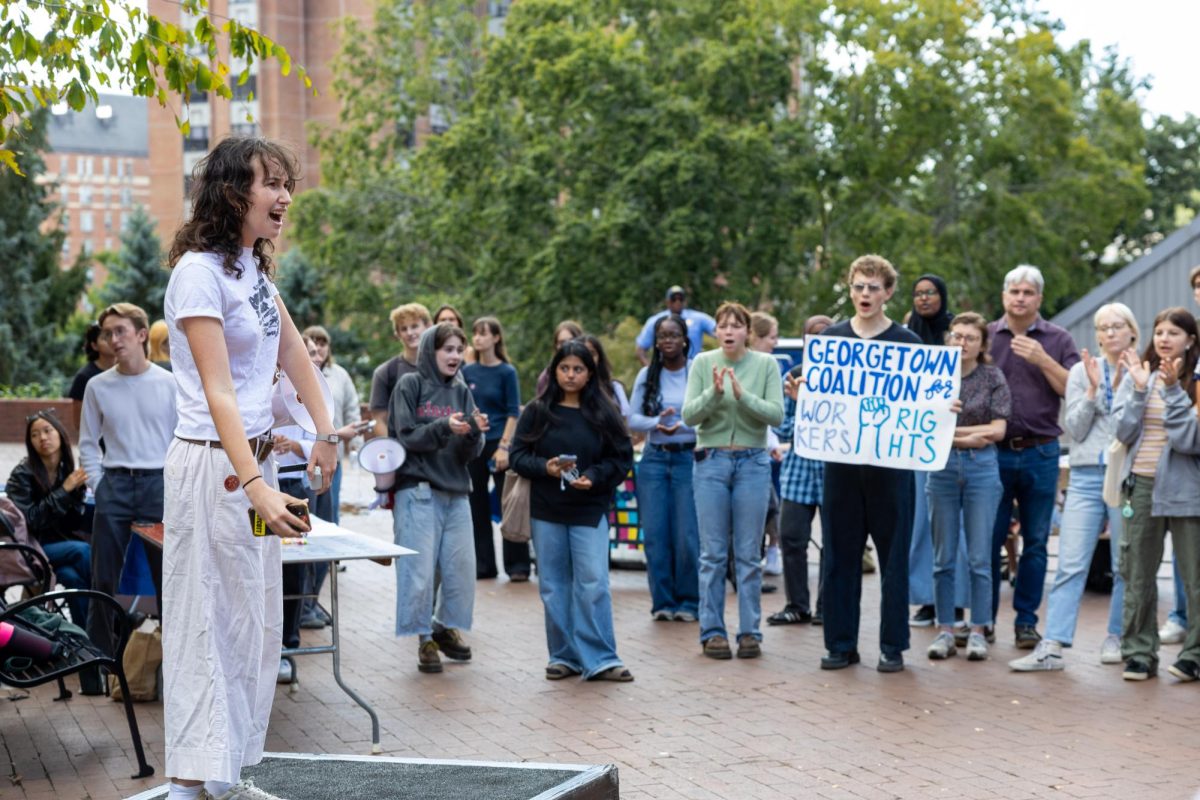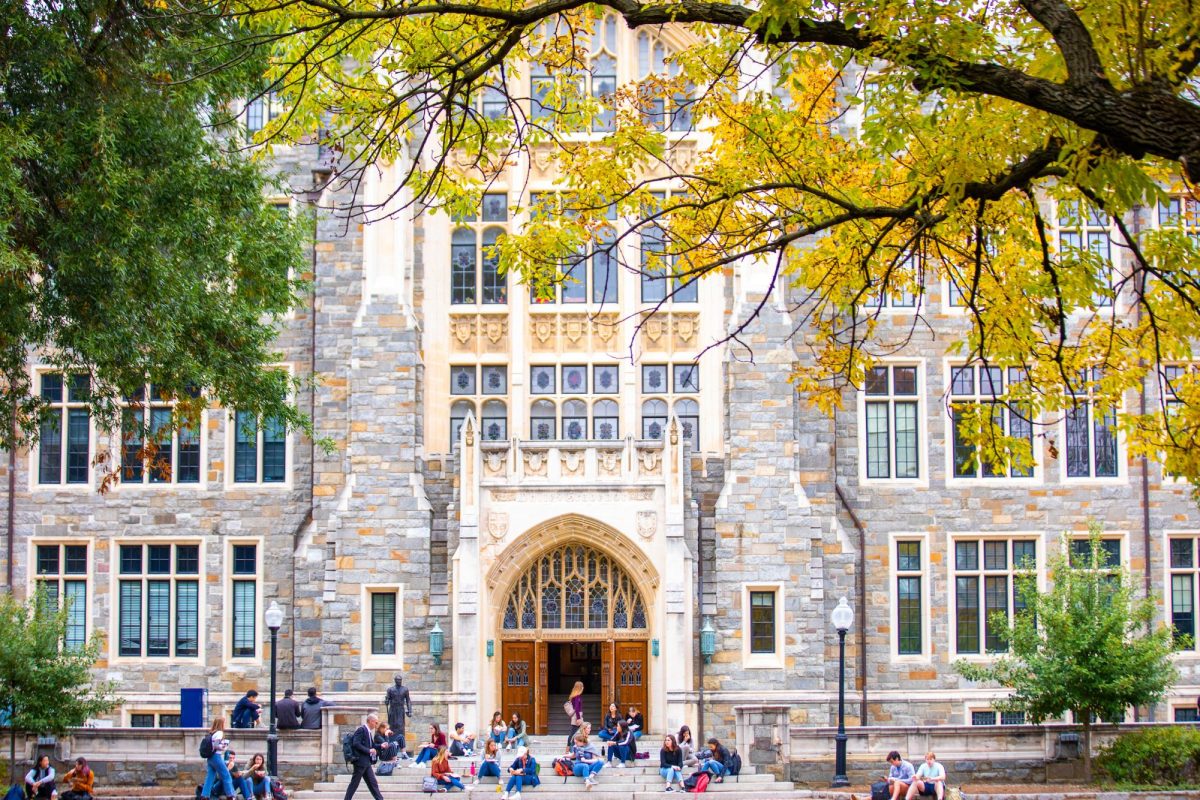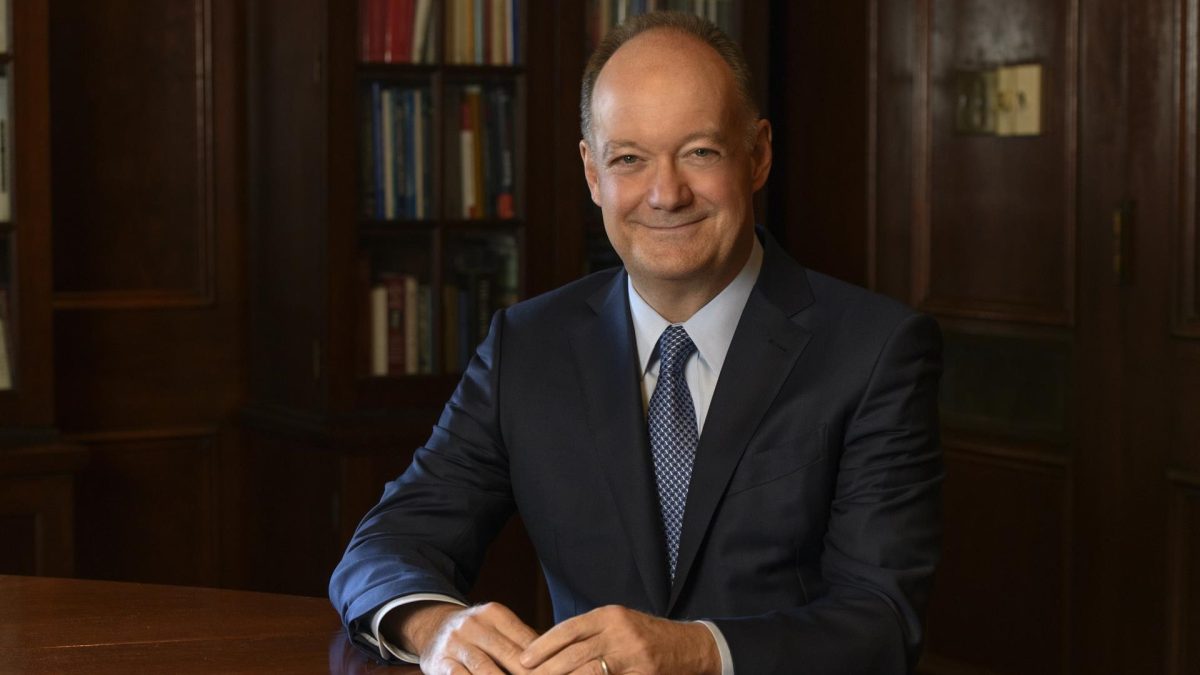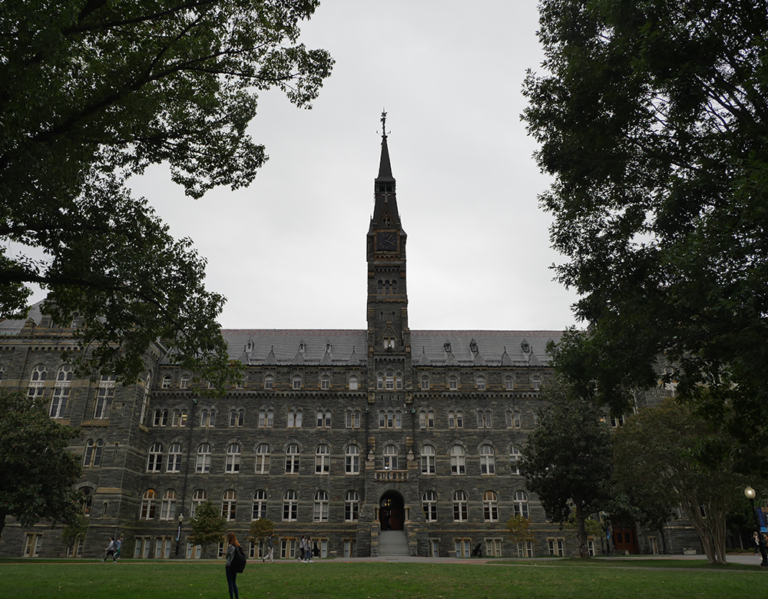Eduardo Peñalver, who will become Georgetown University’s 49th president July 1, 2026, has advocated for immigration, defended affirmative action and criticized President Donald Trump’s policies and rhetoric, according to a review by The Hoya of past statements and actions.
Peñalver served as dean of Cornell Law School before becoming president of Seattle University, a private Jesuit university in Washington state, in 2021. Throughout his career, Peñalver, who will be Georgetown’s first Latino president, has frequently drawn on his own heritage and Jesuit values when opposing immigration crackdowns and efforts against diversity initiatives.
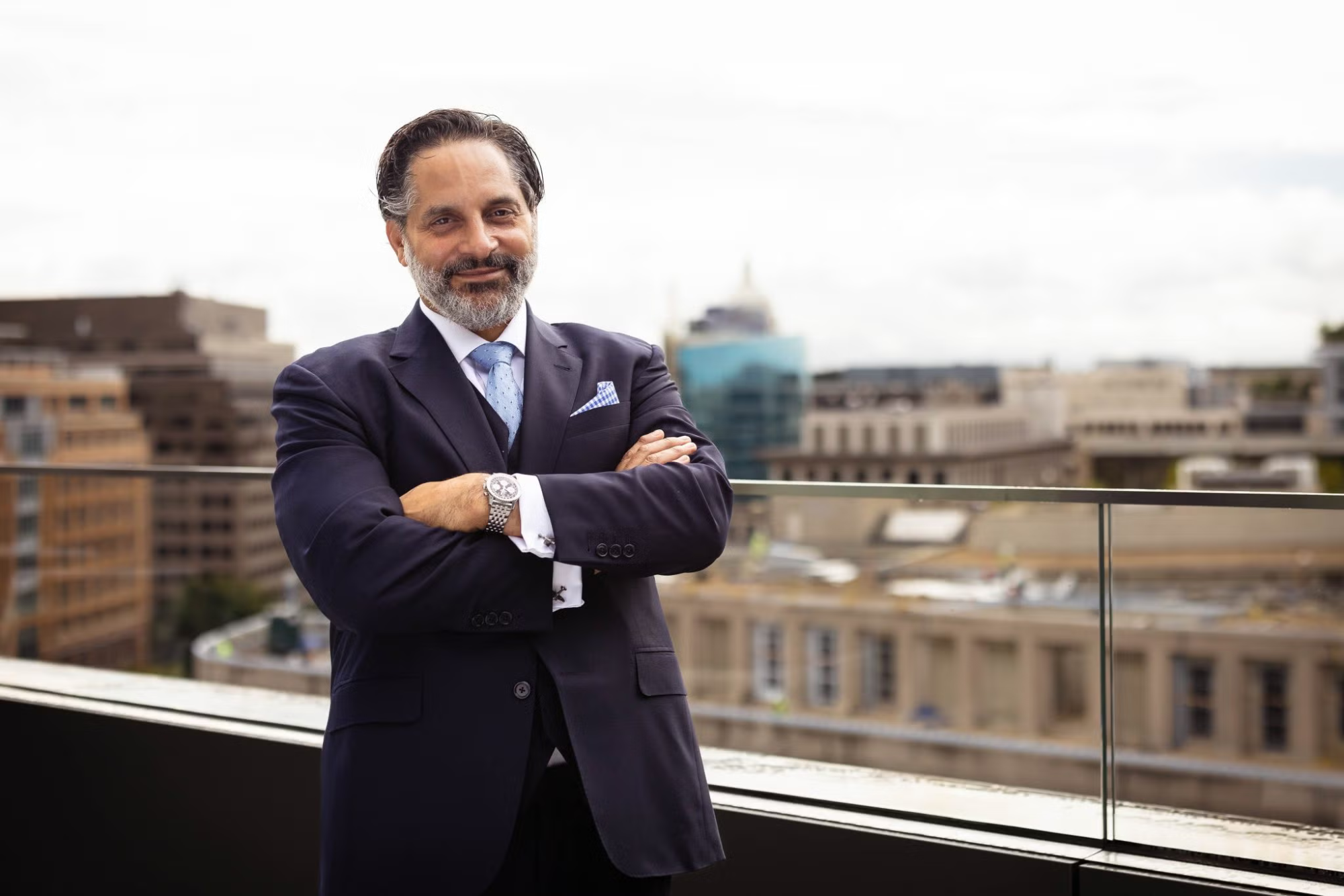
Peñalver said in February that the Trump administration’s attacks on diversity, equity and inclusion (DEI) in higher education appear to “threaten” universities and turned to reaffirming the importance of Jesuit values.
“When faced with a bully, some people are tempted to quietly submit while others feel compelled to punch back,” Peñalver wrote to the Seattle University community. “But it is important to remember that we always retain the power to control how we respond, both emotionally and practically, to provocation. In moments of uncertainty and fear, it becomes even more important to hew closely to first principles and deeply held values.”
According to the Seattle Spectator, Seattle University’s student newspaper, Peñalver described the Trump administration’s cuts to higher education as an “unprecedented effort to undermine the academic freedom and the culture of open-ended inquiry that makes universities the kinds of communities they are” during a May town hall.
Peñalver has been critical of Trump, accusing him of fomenting racial animus and undermining universities.
In an article titled “My America: It’s Not Trump’s,” Peñalver said Trump displays a “monochromatic vision of America” through frequent attacks on minorities and prejudiced comments.
“The anxiety it has evoked is stoked by my love of my sons and my uncertainty about what Trumpism means for the kind of future this country — their country — has in store for them,” Peñalver wrote in the article. “Trump’s racial rhetoric has given the election the feel of a referendum on my family’s right to understand ourselves as authentically American.”
Peñalver has frequently cited his Jesuit values in his condemnation of Trump, and criticized politicians from both parties on those grounds.
In an October 2024 article, Peñalver said Catholics cannot fit clearly into either political party, since many liberal Democrats favor abortion and euthanasia, while many conservative Republicans are against social and welfare programs.
“In general, the Church is wary of any political philosophy, ‘liberal’ or ‘conservative,’ that emphasizes individualism and individual freedom over the kinds of organic, socially embedded relationships that Catholic moral anthropology understands as essential to human flourishing,” Peñalver wrote in the article.
“By engaging with both parties — but tentatively, and from the standpoint of political homelessness — Catholics can help to reduce the polarization that now threatens the health of our political system,” Peñalver added.
Since 2003, Peñalver has contributed to Democratic campaigns or organizations in federal races, totaling over $8,900, according to federal election data. Peñalver has also donated $6,600 to Democrats in state-level races in Washington since 2014 and $900 to New York Democratic campaigns from 2004 to 2017, according to respective state data.
In a 2006 article titled “A Guide for Catholic Voters,” Peñalver also said Catholic voters should not support Republicans solely for abortion issues because Democratic administrations have a stronger historical commitment to fighting poverty and protecting civil rights, which he framed as important moral issues.
“The most reasonable inference to draw is that the Bush administration and Republicans in Congress simply do not accept the broad preference for the poor that underlies Catholic thinking about economic decision making,” Peñalver wrote in the article.
Peñalver has heavily criticized immigration policy throughout his career, saying his heritage and family experience have guided his approach to human rights.
“The politics and policies of immigration in particular over the past few months have hit close to home for me, and so it’d be disingenuous for me to not acknowledge my own strong feelings on the subject,” Peñalver said at a 2017 Cornell Law event about immigration. “For many immigrants and their children, the lines between documented and undocumented are indistinct, cutting across families, separating parents from children and brothers from sisters.”
“I’m an American citizen by birth, as are my children, but my wife is a naturalized citizen, my father arrived in this country as a refugee and my brother-in-law was undocumented for many years,” Peñalver added. “My family’s complex experience in this regard is not atypical.”
Penalver, whose father immigrated from Cuba in 1962, will be Georgetown’s first Latino president, after being the first Latino president at Seattle University and the first Latino dean of an Ivy League law school at Cornell.
Peñalver said Cornell and all higher education institutions should not be afraid to speak out about political issues when they affect the university community.
“Cornell has a point of view about immigration policy because Cornell is an institution dedicated to global engagement, and committed to fostering an environment in which people from all backgrounds rightly consider themselves full and equal members of our community,” Peñalver said at the event. “And living those values is not possible when some members of the community cannot gain entry to the United States because of the country of their citizenship or where some members of the community live in constant fear of deportation.”
“In situations like these, it’s appropriate and I think imperative for Cornell to speak out in support of its founding principles, even at the risk of appearing partisan,” Peñalver added.
At Seattle University, Peñalver developed a policy to issue statements when political issues pertain to the university community. He said he aims to uphold the university’s values while preserving the weight of a presidential statement.
“There’s been a kind of inflationary economy of statement-making over the past 10 years where universities were expected to make more and more statements, so then when you don’t make a statement, people infer you don’t care,” Peñalver said in a June 2024 interview. “So you have to be really cautious about when you weigh in. The line I’ve drawn is I weigh in on things that relate to things we’re doing, that relate to Seattle University, rather than weighing in just in an abstract way about events in the world.”
Peñalver told The Washington Post he plans to follow the same approach at Georgetown.
Peñalver has also described diversity as a core value of higher education, including racially, economically and ideologically. He has drawn on his faith and Seattle University’s Jesuit heritage to defend affirmative action and a commitment to social justice.
In a 2023 opinion article he wrote jointly with Kent Greenfield, a constitutional law professor at Boston College — another Jesuit university — Peñalver said affirmative action is a core part of a Jesuit education.
“The creation of diverse communities of students, faculty and staff embodies and expresses our institutions’ Jesuit and Catholic religious commitments,” Peñalver and Greenfield wrote in the article. “Admissions decisions and other practices aimed at achieving these goals therefore reflect some of our deepest beliefs. For us, and for many faith-based universities, a strict colorblindness requirement has the potential to interfere with our ability to construct and maintain the kinds of educational communities that reflect these foundational principles.”
Peñalver has been an outspoken proponent of LGBTQ+ rights since at least the mid-2000s, criticizing religious conservatives who opposed gay marriage and defending a gay teacher who was fired by a Catholic school. At Cornell, he denounced a policy from the first Trump administration restricting transgender military personnel, saying it was antithetical to the university’s values.
“An actual or effective ban on transgender individuals serving in the military in any capacity is antithetical to our deepest held beliefs and to the bedrock principle of equal justice under the law,” Peñalver wrote in a 2018 statement to the Cornell law community. “A categorical prohibition of military service by transgender people, regardless of their qualifications, is lacking in any rational basis and is the epitome of invidious discrimination.”
At Seattle University, Peñalver criticized similar restrictions, writing that discrimination against LGBTQ+ individuals “stands in opposition to both our mission and our Catholic, Jesuit values.”
Peñalver also wrote against legal accommodations for organizations with religious objections to contraception that would have allowed them to omit contraceptive care from insurance coverage.
In a 2013 article, Peñalver defended a rule during former President Barack Obama’s administration that guaranteed contraceptive coverage without requiring employers who object to bear the cost, saying the rule did not violate religious freedom.
“In creating this accommodation, the administration has crafted a workable mechanism to allow employees to get their contraceptive coverage at no cost, without significant (in my opinion) involvement by employers,” Peñalver wrote in the article. “I don’t see the rationale for not expanding that mechanism as far as possible, even including for-profit employers with religious objections.”
“I have yet to see a good explanation for how the accommodation infringes on employers’ religious freedom,” Peñalver added.
Georgetown offers a similar system for faculty and staff under its health plans.
When writing to the Seattle University community about threats from the federal government, Peñalver reaffirmed his commitment to education, saying he would continue to focus on diversity and justice.
“Drawing on this tradition, as we face the challenges that lie ahead, Seattle University will not compromise our principles (‘the end for which God created us’),” Peñalver wrote. “We remain committed to providing economic opportunity for those who have historically been, and continue to be, excluded from higher education and to our values of radical hospitality.”


